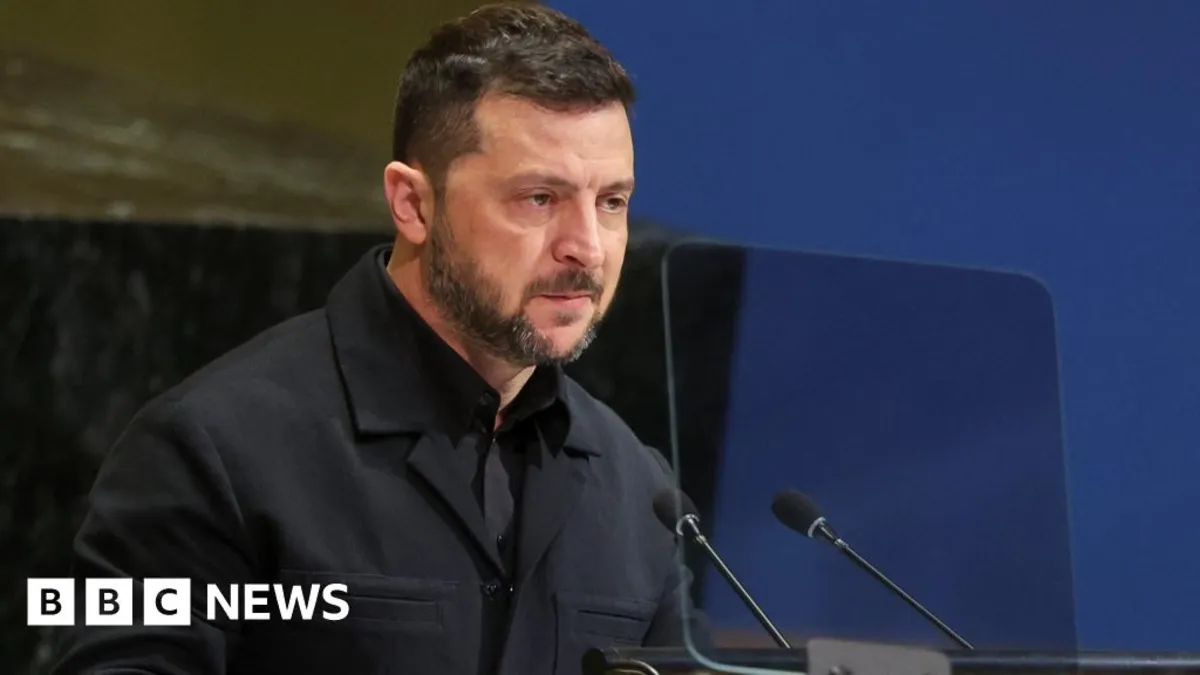
In a powerful address at the UN General Assembly in New York, Ukrainian President Volodymyr Zelensky issued a stark warning that if not halted, Russian President Vladimir Putin will continue to escalate the ongoing conflict, plunging more countries into the depths of war. Zelensky emphasized the urgent need for a unified response from global allies to counteract Russian aggression.
Zelensky articulated that the entire world is facing the threat of a global arms race, driven by rapid advancements in military technology. He underscored the critical role that weapons play in determining survival in today’s geopolitical landscape. In light of these developments, he called for the establishment of global rules on artificial intelligence (AI) to govern its application in military contexts, particularly concerning autonomous weapon systems.
During his speech, Zelensky criticized various international institutions, implying that they lack the strength to provide adequate safety guarantees for Ukraine. He pointed out that membership in long-standing military alliances, such as NATO, does not automatically ensure a nation's safety. "We are now living through the most destructive arms race in human history," he declared, stressing that the cost of stopping Russia now is far less than the potential future consequences of unchecked aggression.
The Ukrainian leader also expressed grave concerns about the fate of Moldova, a crucial country situated between Ukraine and EU-member Romania. Zelensky warned that losing Moldova to Russian influence would have dire implications for the region. He noted missed opportunities to safeguard Georgia and Belarus from falling under Putin's control. Recently, Moldova's pro-EU President Maia Sandu accused the Kremlin of investing hundreds of millions of euros to incite unrest and spread fear within the nation as voters prepare for an election.
The tensions escalated further when Estonia and Poland sought consultations with other NATO members following multiple incidents of Russian aircraft violating their airspace. Romania also reported incursions by Russian drones, highlighting the growing concern among NATO allies regarding Russia's aggressive military maneuvers.
In a notable shift, former US President Donald Trump stated that Ukraine could reclaim all its territory, marking a departure from his earlier position that suggested land swaps as a peace condition. Trump urged NATO nations to take assertive actions, including shooting down Russian planes breaching their airspace. In a positive light, Zelensky praised Trump for his recent comments and expressed satisfaction with their meeting, noting that the US seems open to providing Ukraine with security guarantees post-conflict.
Amid these developments, US Secretary of State Marco Rubio met with Russian Foreign Minister Sergei Lavrov, marking the highest-level diplomatic engagement between the US and Russia since Trump’s invitation to Putin last month. During this meeting, Rubio reiterated calls for an end to hostilities and pressed for meaningful steps toward a durable resolution of the Russia-Ukraine war.
As the situation continues to evolve, it is evident that the geopolitical landscape is fraught with challenges. Zelensky's urgent plea for a united front among global allies underscores the critical need for a coordinated response to counteract Russian aggression and establish stability in Eastern Europe. The call for international regulations on the use of AI in warfare further emphasizes the complexities of modern conflict and the necessity for proactive measures to ensure global security.